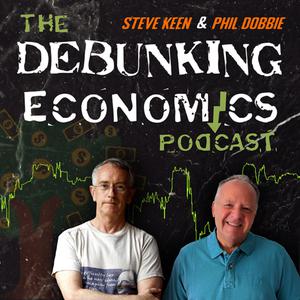
Debunking Economics - the podcast
Steve Keen & Phil Dobbie
- 37 minutes 3 secondsReeves off track on growthRachel Reeves, the UK Chancellor, has fallen into the debt-trap argument. She says she is focused on growth, but she is also determined to balance the budget. Cuts to government spending is part of the picture, but her biggest attack has been on business, increasing tax on employment. You could argue that if you are going to tax anywhere, taxing business is better than taxing personal income, but Steve argues that anything that drives money out of the real economy will slow growth, evidenced by the latest numbers showing GDP has flat lined.
Hosted on Acast. See acast.com/privacy for more information.
22 January 2025, 8:00 am - 39 minutes 51 secondsThe population clockThere are, its estimated, 8.2 billion people on the planet. The UN projects that the world's population will reach 9.7 billion by 2050 and 11.2 billion by 2100. We won’t reach that, says Steve Keen. Even if we ignore climate change, we’ll exceed our capacity to support the population, and the as countries become richer their fertility rate will decline. The hope is that the natural decline happens before more extreme declines brought about by war, climate change and starvation. But, even intis best case scenario, we need to address the issue that the population is not always close to the food it needs, and economics naturally concentrates capital.
Hosted on Acast. See acast.com/privacy for more information.
15 January 2025, 8:00 am - 44 minutes 20 secondsWhen Coincupia starts to allow loans and bank notesLast week Phil introduced us to the island of Coinucopia, where only a limited supply of gold coins could be used to keep the economy functioning. But the island is suffering from very slow economic growth. Steve explains how any innovation, that sees new products come to market, will see the same money chasing more goods, so prices will necessarily come down. That’s until the island decides to allow bank loans. At first, they only allow banks to loan out coins that have been deposited with them, but eventually they realise the potential of introducing bank notes. Now they have growth, but how do they curtail inflation? They’ve read Milton Friedman and believe an increase in money automatically creates inflation. But maybe he was wrong!
Hosted on Acast. See acast.com/privacy for more information.
8 January 2025, 8:00 am - 30 minutes 15 secondsThe cash only economy where economics worksThis week Phil introduces Steve Keen to the fictional island of Cornucopia. It’s a simple place, where the only trade takes place with gold coins. Banks are not allowed to give loans, and the money supply remains constant, unless the Chancellor decides to mint new ones. In such circumstances, how many basic economic principles work? Most of them, it seems. Sadly, this is not the real world, and economists who practice double entry book-keeping are imprisoned. Until the Chancellor realises there’s no growth and seeks help. To be continued.
Hosted on Acast. See acast.com/privacy for more information.
1 January 2025, 8:00 am - 42 minutes 32 secondsIs income disparity essential for growth?Elon Musk has been moaning that he pays too much tax. He wants to keep more of the $14 billion or so that he earns each year. But has he got a point? Do we need to the opportunity to become incredibly wealthy to drive innovation. If we had more equal levels of income, would we actually suffer from lower growth, so everyone would end up worse off.? Phi puts the question to Steve Keen on this Christmas edition of the Debunking Economics podcast.
Hosted on Acast. See acast.com/privacy for more information.
25 December 2024, 8:00 am - 39 minutesWhat do central banks do?When central banks declare a new interest rate, how does that magic into existence? Steve explains how they trade in bonds, to drive yields close to their target rate. If they are buying up bonds held by pension funds and the like, are they also adding to the money supply? Could that have more impact on the health of the economy than playing with interest rates? But the problem is, the money created is circulating in the financial sector. If the central bank really wanted to boost the economy, it should find ways of pushing new money to those less well off.
Hosted on Acast. See acast.com/privacy for more information.
18 December 2024, 8:00 am - 45 minutes 14 secondsBanks, reserves, lending and money supplyThere’s a common myth around banks. That banks are the intermediaries who collect deposits from customers, keep a bit in reserve, then lend out the rest at a higher interest rate. That argument then extends to a multiplier effect, where the money loaned out is deposited in banks, freeing up more money for further loans. The multiplier is how textbooks argue that banks create new money for the economy. This week Steve argues that the multiplier doesn’t exist. Not in that way anyway. And banks create money, not by lending out deposits, but by creating new money to lend out, which appears as deposits in the bank’s balance sheet. This week Phil brings the textbook arguments to the table for Steve to shout them down.
Hosted on Acast. See acast.com/privacy for more information.
11 December 2024, 8:00 am - 42 minutes 18 secondsGovernment debt, bonds and money supplyDoes government debt expand the supply of money? According to Modern Monetary theory, yes it does. It’s all down to simple double-entry book-keeping and an understanding of the role of financial equity. As Steve explains, in this step-by-step guide, for the private sector to experience positive equity, the government sector has to have negative equity. In other words, without the government sector spending more than it’s earning, there’s no new money being added to the private sector. As Stephanie Kelton puts it, their red ink is our black ink. This is one episode to share with your friends.
Hosted on Acast. See acast.com/privacy for more information.
4 December 2024, 8:00 am - 40 minutes 7 secondsCan Europe be Draghi-ed out of stagnation?You’ll know the name Mario Draghi. He was the President of the European Central Bank and, for a short while, Prime Minister of Italy. Earlier this year he produced a report EU Competitiveness. It called on the need for more Europe-wide investment, particularly for innovation, emerging industries and the transition to green energy. Phil and Steve talk through the ideas and the challenges they present to the structure of the EU. Are the challenges insurmountable? Is that why Draghi’s plan already seems to have been lost at the back of the bookshelf. There is one competitive edge of Europe though. Steve says if the US successful cuts government spending by the touted $2 trillion, that’s money pulled out of their economy. If Europe was to take the opposite tack, it could tip th balance in its favour Particularly, suggests Phil, if the extra public money is spent building Europe-based AI data centres to challenge the US dominance in this rapidly growing sector.
Hosted on Acast. See acast.com/privacy for more information.
27 November 2024, 8:00 am - 40 minutes 8 secondsTariffic TrumpAt least half of America is elated with its new choice of President. Money is already flowing into the country, with early gains on the NYSE and the dollar shooting higher in value. Tariffs will be front and centre early in the new Presidency, with Trump describing Tariffs as “a beautiful word” recently. But will it have the intended effect. Could the strength in the dollar wipe out any of the benefits from domestic production? Will higher tariffs add to the cost and drive inflation? Does America have the skills base to manage the onshoring of so much productive capacity? Phil Dobbie and Steve Keen discuss what will happen next in America.
Hosted on Acast. See acast.com/privacy for more information.
20 November 2024, 8:00 am - 39 minutes 7 secondsMilking inheritanceThe UK Labour party seems top have scored another own goal, with their inheritance tax on family farms. Previously farms were exe pt from inheritance, but that meant wealthy landowners, with massive stately homes set in sprawling estates could buy a few sheep and claim they were a farm. Hence, the government limited the exemption to properties worth less than £1 million, a threshold which Steve Keen suggests is well below a realistic level. Thresholds should only be there for th every rich, which is the US approach to inheritance. This week Phil and Steve look at ways of managing inheritance and ask whether there are better ways of ensuring we don’t see intergenerational wealth getting out of control.
Hosted on Acast. See acast.com/privacy for more information.
13 November 2024, 8:00 am - More Episodes? Get the App
Your feedback is valuable to us. Should you encounter any bugs, glitches, lack of functionality or other problems, please email us on [email protected] or join Moon.FM Telegram Group where you can talk directly to the dev team who are happy to answer any queries.
 The Bunker
The Bunker
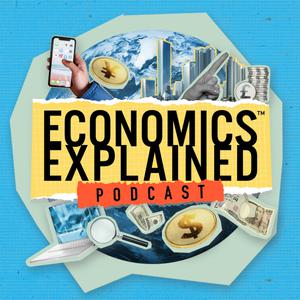 Economics Explained
Economics Explained
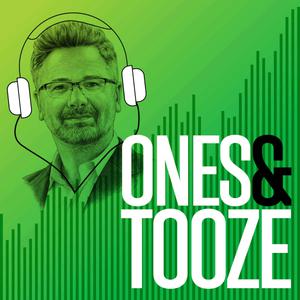 Ones and Tooze
Ones and Tooze
 LSE: Public lectures and events
LSE: Public lectures and events
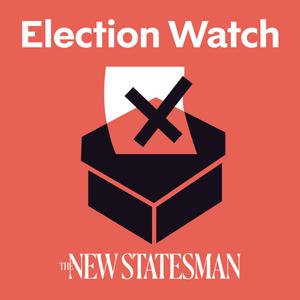 Election Watch: The New Statesman podcast | daily throughout the UK general election
Election Watch: The New Statesman podcast | daily throughout the UK general election
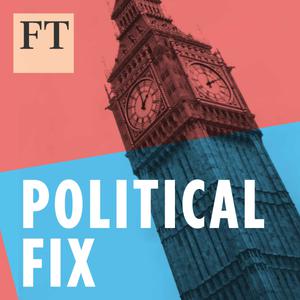 Political Fix
Political Fix